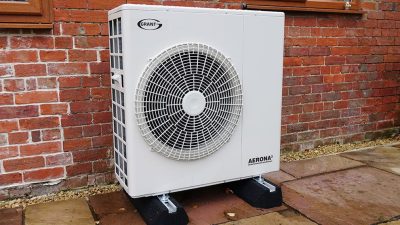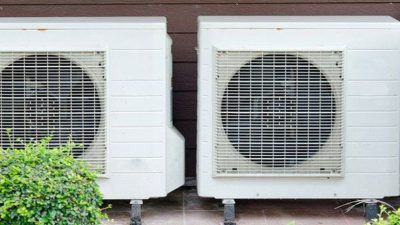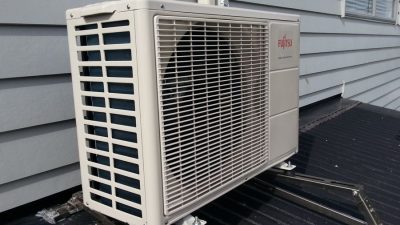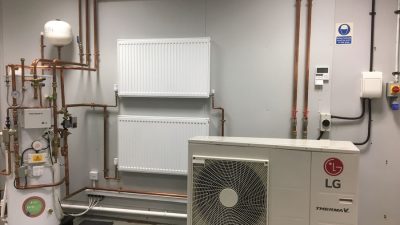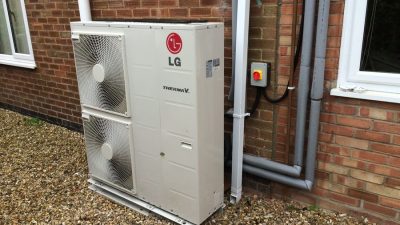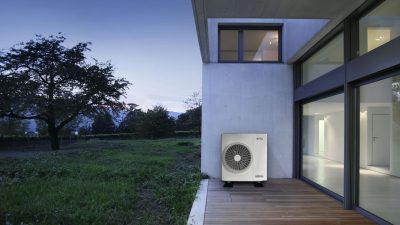Do heat pumps use a lot of electricity? It’s a question that’s been on the minds of many homeowners and business owners alike, especially in this age of innovation and technology. Heat pumps are a great way to save energy and money, but it’s important to understand how much electricity they actually use. In this article, we’ll take a look at the electricity usage of heat pumps and what you can do to reduce your energy costs.
Heat pumps are an efficient way to keep your home or business warm during those cold winter months. They work by transferring heat from one place to another, so instead of burning costly fuels like natural gas or oil, they transfer thermal energy from outside air into your home or business. This means you can enjoy comfortable temperatures without having to worry about high energy bills.
However, many people still wonder if heat pumps use a lot of electricity. We’ll explore this question in more detail in this article and find out whether or not they really are as energy-efficient as they seem. With the right information and strategies, you can make sure that using a heat pump is really worth it for your pocketbook – and the environment!
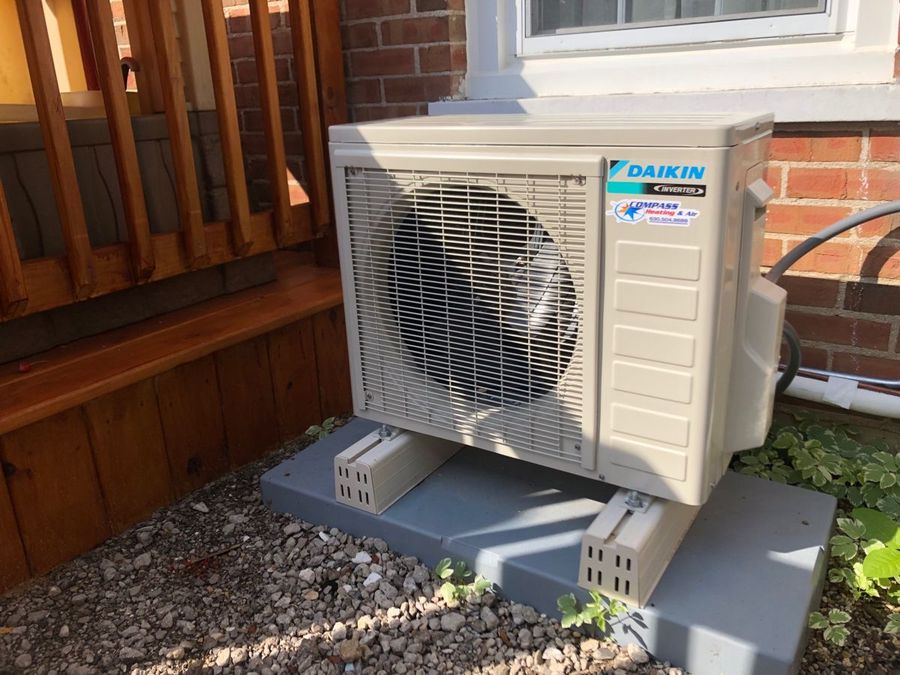
How A Heat Pump Works
Heat pumps are an energy-efficient way of heating and cooling homes. They use thermal energy exchange to convert electrical energy into heat, which is then transferred to the desired space. It’s a relatively simple process that works by extracting heat from the surrounding environment, either outside air or ground source, and transferring it inside your home.
Heat pump operation is based on a simple principle: transfer heat rather than generate it. Heat pumps use a refrigerant as part of the heat transfer process. This refrigerant absorbs thermal energy from the outdoor air or underground source and transfers it indoors. The air to air heat pump is usually more efficient than other traditional heating systems because it uses less electrical power to move heat rather than generate it.
Heat pumps are designed to maintain a comfortable temperature in your home while reducing your electricity bills. The ground source heat pump system extracts thermal energy from the ground or water sources instead of relying solely on outside air for heating and cooling operations. With its high efficiency, this system can significantly reduce your overall energy costs throughout the year.
Efficiency Of Heat Pumps
Heat pumps are highly efficient, and can save you money in the long run. Heat pump efficiency is measured by a number of factors, including energy efficiency heat pump performance, running costs and cost savings. By efficiently transferring heat from one area to another, a heat pump can reduce your energy bills significantly.
The performance of a heat pump depends on many factors, such as the size of the home it’s being used in and the climate that it’s installed in. However, with proper maintenance and installation, a modern heat pump can provide up to 400% heating efficiency – meaning that for every unit of electricity used to power it, four units of energy will be produced in return. This makes them an excellent choice for those looking to lower their monthly utility bills while still maintaining comfortable indoor temperatures.
Heat pumps also have relatively low running costs compared to other heating systems like electric furnaces or gas-powered boilers. Furthermore, they don’t require much upkeep either – simply replacing the air filter every few months should be sufficient for most models. With all these benefits combined, investing in a high-efficiency heat pump could lead to substantial cost savings over time.
Types Of Heat Pumps
When it comes to the types of heat pumps, there are several options to consider. Geothermal heat pumps transfer energy from the ground into a home, while air-source heat pumps use air outside to provide energy. Ductless heat pumps allow homes to be heated and cooled without ducts, while ground-source heat pumps are able to transfer energy from the earth’s surface into a home. Lastly, absorption heat pumps are powered by an external source such as gas or solar power.
Though all of these types of heat pumps use electricity in some way, they can still be very efficient depending on their size and installation location. For example, an air-source pump placed in an area with moderate temperatures may use less electricity than one placed in an extreme climate. Similarly, ductless and ground-source systems tend to be more efficient than geothermal ones due to their ability to draw energy from a variety of sources. Ultimately, if installed correctly and maintained properly, any type of heat pump can be very efficient and cost effective when it comes to heating and cooling your home.
Energy Usage By Heat Pumps
Heat pumps have gained in popularity over the years because they offer an efficient way to heat and cool homes. But how much electricity do heat pumps use? That depends on a few factors including size, type, heating/cooling needs, and climate. On average, heat pumps use about 3-5 kWh of electricity per hour for heating and 1-2 kWh of electricity per hour for cooling.
In terms of energy costs, running a heat pump can be more economical than other types of HVAC systems. Heat pump efficiency is measured by its coefficient of performance (COP), which indicates how much energy is used for each unit of energy output. The higher the COP rating, the more efficient the system is and the lower your electricity bills will be. Generally speaking, a good COP rating should be above 4.0.
Heat pumps are highly efficient systems that can save you money on your energy bills while providing a comfortable home environment year-round. With proper maintenance and timely repairs, you can ensure that your heat pump continues to operate at peak efficiency while keeping your energy costs low.
Cost Of Running A Heat Pump
The cost of running a heat pump is an important consideration when evaluating the efficiency of this type of system. Heat pumps use electricity to transfer heat from one area to another, so it’s important to understand how much power they consume. In general, a heat pump will use more electricity than other heating systems, such as gas furnaces or electric baseboard heaters. However, the exact amount depends on several factors including the size and efficiency of the unit and temperature settings.
The good news is that because of their higher efficiency rating, running costs for heat pumps are usually lower in comparison with other heating systems. But it’s important to note that electricity costs can vary widely depending on where you live and your local energy provider’s rates. To get an accurate estimate of what it would cost to run a heat pump in your home, contact your energy provider or consult with a qualified HVAC professional. They can help you calculate the exact amount based on your unique situation.
Understanding the cost of running a heat pump is only part of deciding if this type of system is right for you. By weighing all the factors involved – including installation costs, energy savings over time and maintenance expenses – you can make an informed decision about whether this type of heating system is right for your home.
Benefits And Drawbacks Of Heat Pumps
Heat pumps offer a great deal of benefits to the environment and homeowners alike. They are an efficient way to heat and cool a home, as they use very little electricity and can save a great deal of energy. Additionally, they have less of an environmental impact than traditional heating systems, as they don’t release any harmful emissions into the air.
Unfortunately, heat pumps also come with some drawbacks. Many people complain about the noise that comes from a heat pump, which can be particularly loud at night. This can cause problems for neighbors who live close by, as well as disruption to your own sleep. Heat pumps may also require more frequent maintenance than other heating systems, leading to higher costs over time.
It’s clear that heat pumps have both advantages and disadvantages. While their energy savings and environmental impact are undeniable, the noise pollution that comes along with them should be considered before investing in one. Ultimately, it is up to each individual to decide whether or not a heat pump fits their needs best.
Conclusion
In conclusion, heat pumps are a very efficient way to heat and cool your home. They use electricity to transfer heat from one place to another, so they can be an economical alternative to traditional heating systems. Heat pumps come in many different types and can be used for both heating and cooling purposes. While they do require some electricity, their efficiency means that their energy usage is relatively low compared to other systems. Additionally, the cost of running a heat pump is usually lower than that of other heating and cooling options.
Overall, heat pumps are an eco-friendly option that can help you save money on your energy bills while still providing the comfort you need in your home. Their versatility makes them ideal for any climate or budget, making them a great choice for those looking for an efficient way to heat and cool their homes.
If you’re considering installing a heat pump in your home, make sure to research all of the available options so that you choose the one that best fits your needs. With proper installation and maintenance, a heat pump can provide reliable comfort while also helping you reduce your carbon footprint.

